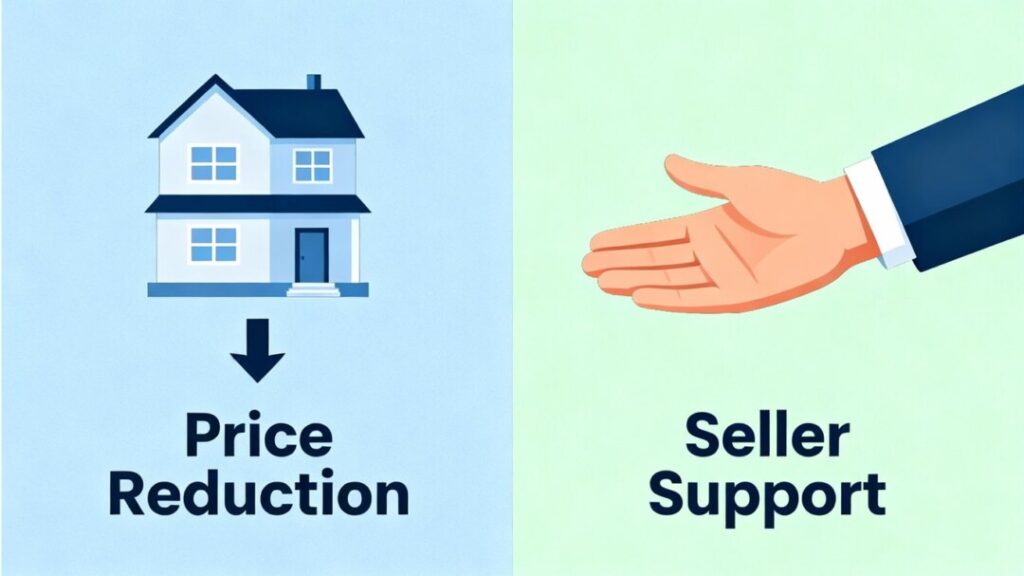In today’s real estate market, sellers are often faced with a crucial decision: should they reduce the listing price of their home or offer seller concessions? This strategic choice can significantly impact a sale’s success, particularly for first-time homebuyers who may be budget-conscious. Understanding the nuances of each approach is key to maximizing exposure and achieving a favorable outcome.
Key Takeaways
- A price reduction generally offers broader market exposure and reduces appraisal risks.
- Seller concessions, like closing cost assistance or interest rate buydowns, can be more effective for buyers struggling with immediate cash or qualifying income.
- The optimal strategy depends on the specific buyer profile and property circumstances.
Understanding Seller Concessions
Seller concessions can take various forms, with closing cost assistance and interest rate buydowns being the most common. For first-time homebuyers, who often have limited cash for down payments and closing costs, assistance with closing expenses can be a significant help. They might have the income to qualify for a mortgage but lack the upfront funds.
An interest rate buydown becomes particularly useful when a buyer’s income-to-expense ratio is a hurdle. By lowering the interest rate, a buyer can qualify for a higher loan amount or a more expensive home. This can sometimes be a more cost-effective solution than a price reduction, as it directly addresses the buyer’s monthly payment capacity and can be the deciding factor in getting a deal done.
The Power of a Price Reduction
Buyers often search for homes within specific price brackets. If a property is priced just outside a buyer’s search parameters, it may not even appear in their results, rendering it invisible to a significant portion of the market. A price reduction can strategically place the home within these sought-after brackets, increasing its visibility.
Furthermore, a lower price can help ensure the home appraises at the agreed-upon sale price, mitigating potential issues that could arise if the appraisal comes in lower than expected, especially when seller concessions are involved. Psychologically, a lower sticker price is also generally more appealing to potential buyers.
Making the Right Choice
There isn’t a one-size-fits-all answer when deciding between a price reduction and seller concessions. However, a straight price reduction often proves superior for maximizing market exposure, minimizing appraisal risks, and potentially yielding slightly higher net proceeds for the seller.
Buyer incentives are best utilized strategically. They can be instrumental in closing a deal with a cash-strapped buyer or addressing specific property concerns without the need for extensive repairs. Consulting with an experienced real estate agent is crucial, as they can assess individual circumstances and market conditions to recommend the most effective pricing and incentive strategy. Time is of the essence in real estate, and a prolonged market time can increase costs for sellers.


